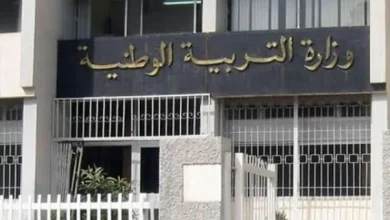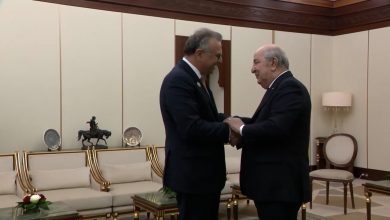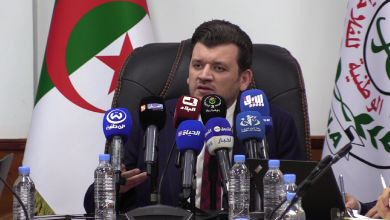The arrest of Sudanese journalist Muammar Ibrahim by the Rapid Support Forces (RSF) in El Fasher has ignited widespread condemnation and calls for his immediate release, with concerns mounting over his safety and well-being. Social media platforms have been flooded with messages of solidarity, using hashtags like #FreeMuammer and #ProtectMuammar, demanding his freedom and highlighting the dangers faced by journalists covering the ongoing conflict in Sudan.
A video circulating online shows Ibrahim surrounded by RSF soldiers, identifying himself and confirming his detention while attempting to leave El Fasher, a city currently embroiled in fierce clashes between the Sudanese Armed Forces (SAF) and the RSF. The footage has been described as disturbing and heartbreaking, fueling accusations that the RSF is deliberately targeting journalists and civilians.
The Sudanese Journalists Syndicate (SJS) confirmed Ibrahim’s arrest following the RSF’s capture of the 6th Infantry Division headquarters in El Fasher. The syndicate expressed grave concern for his safety and held the RSF fully responsible for his life. In a statement, the SJS demanded Ibrahim’s unconditional and immediate release, urging the RSF to ensure a safe environment for journalists operating in El Fasher. They also highlighted the near-total media blackout in the city due to communication and internet outages, further exacerbating the ambiguity surrounding the humanitarian and security situation.
Ibrahim, a prominent journalist who has consistently documented the conflict in Darfur, has been a vital source of information, providing crucial updates from the ground despite the significant risks involved. His arrest has been interpreted by many as a deliberate attempt to intimidate journalists and suppress independent reporting on the conflict. Activists and fellow journalists argue that Ibrahim’s detention is a blatant violation of international humanitarian law, which protects journalists as civilians and prohibits their detention or mistreatment.
The International Federation of Journalists (IFJ) has been urged to take immediate action to ensure Ibrahim’s safety and secure his release. Human rights organizations have also joined the chorus of condemnation, emphasizing the importance of protecting journalists and upholding freedom of the press in conflict zones. The arrest has drawn attention to the escalating dangers faced by journalists in Sudan, who are increasingly caught in the crossfire between warring factions.
The RSF has not yet officially commented on Ibrahim’s arrest, but the video circulating online appears to show RSF soldiers mocking and interrogating him. Reports suggest that Ibrahim was attempting to leave El Fasher due to the deteriorating security situation when he was apprehended. The circumstances surrounding his arrest remain unclear, but concerns are growing that he may be subjected to ill-treatment or torture.
For more information about News, check our dedicated section.
Online, social media users have expressed outrage and disbelief at Ibrahim’s arrest. Many have praised his courage and dedication to reporting the truth, even in the face of danger. They argue that his arrest is an attempt to silence a critical voice and prevent the public from learning about the realities of the conflict in Darfur. The hashtag #FreeMuammer has become a rallying cry for journalists, activists, and concerned citizens around the world, demanding his immediate release and highlighting the importance of protecting press freedom.
Some social media users have drawn attention to other videos allegedly showing RSF soldiers mistreating Ibrahim. These videos, if verified, would further fuel accusations of human rights abuses and violations of international law. The Sudanese government and international organizations are under increasing pressure to investigate these allegations and hold those responsible accountable.
The arrest of Muammar Ibrahim comes at a time when Sudan is facing a severe humanitarian crisis, with millions of people displaced and in need of assistance. The ongoing conflict has disrupted access to essential services, including healthcare, food, and water. Journalists play a crucial role in documenting the humanitarian situation and informing the public about the needs of affected populations. Their safety and freedom are essential for ensuring that the world is aware of the crisis and that aid reaches those who need it most.
The situation in El Fasher remains tense, with ongoing clashes between the SAF and the RSF. The city is a strategic location in Darfur, and its control is vital for both sides in the conflict. The fighting has resulted in significant civilian casualties and displacement, and the humanitarian situation is rapidly deteriorating. The arrest of Muammar Ibrahim is just one example of the challenges faced by journalists and civilians in the conflict zone.
As the conflict in Sudan continues, it is crucial that the international community takes action to protect journalists and uphold freedom of the press. The arrest of Muammar Ibrahim is a stark reminder of the dangers faced by journalists in conflict zones and the importance of ensuring their safety and security. His immediate and unconditional release is essential for upholding the principles of freedom of expression and ensuring that the world is informed about the realities of the conflict in Sudan. The focus now shifts to international pressure on the RSF and continued advocacy for Ibrahim’s freedom, alongside calls for a broader commitment to protecting journalists across Sudan facing similar threats.



